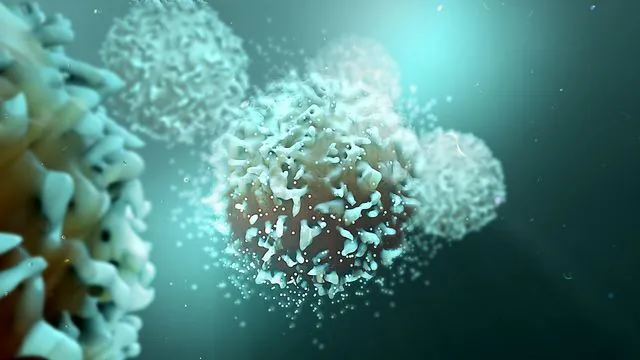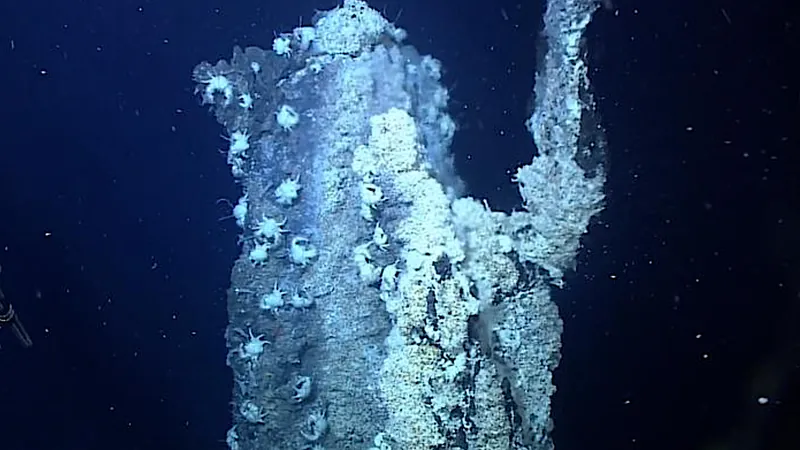
Revolutionary Study Links Gut Microbes to Cancer Prognosis and Treatment Efficacy
2025-08-28
Author: Wei
Unlocking the Microbial Mystery in GI Tumors
Groundbreaking research reveals that the microbes residing within gastrointestinal (GI) tumors might be the key to understanding why some patients face different fates when it comes to treatment and cancer progression. A diligent team from Nankai University in Tianjin, China, has unveiled a specific set of microbial communities strongly associated with prognosis across various GI cancers, paving the way for enhanced risk assessment and treatment strategies.
Identifying Key Microbial Players Across Cancers
In a remarkable study published in Microbiology Spectrum, researchers analyzed a vast array of 1,602 tumor samples alongside 116 normal tissue samples from existing databases. They pinpointed 15 bacterial genera that consistently align with patient outcomes across six distinct types of GI tumors. This unique microbial signature proved to be a significant predictor of survival rates and the risk of metastasis.
Emerging Concern: Rising GI Cancer Rates Among Younger Adults
Currently, GI cancers make up nearly 50% of all new cancer diagnoses globally and are responsible for approximately one-third of cancer deaths. Alarmingly, incidence rates are increasing among younger adults, highlighting the urgent need to discover early markers for risk and treatment response.
The Microbial Connection: How They Influence Cancer
Prior studies have shown that diverse microbial communities thrive within GI tumors. Certain microbes, like Escherichia coli, have been found to hamper treatment effectiveness in colon cancer, while others, such as Staphylococcus and Lactobacillus, have been implicated in the metastatic behavior of breast cancer. This new research aims to extend that understanding by identifying microbial signatures that resonate across multiple GI tumors.
Introducing a Microbiota-Based Risk Score
The study found intriguing connections between various bacteria and immune responses. For example, Granulicella was tied to lower levels of CD8+ T cells, indicating a higher metastasis risk, whereas Dorea bacteria correlated with a stronger immune response and reduced disease spread. From these insights, researchers developed a microbiota-based risk score capable of predicting poorer survival outcomes and increased metastasis likelihood in high-risk patients.
A New Tool to Enhance Patient Outcomes
This innovative score is designed to complement existing risk assessment tools, providing additional insights into which patients may benefit from alternative therapeutic strategies, particularly when immunotherapy poses challenges. It's not about replacing current methods but enhancing patient care through a more comprehensive risk evaluation.
Looking Ahead: Further Research Required
The findings present a promising frontier, but further validation through prospective clinical studies is necessary. Researchers aim to delve deeper into the biological mechanisms that link microbial composition with tumor behavior, continuing the quest to leverage gut microbes for better cancer prognosis and treatment.



 Brasil (PT)
Brasil (PT)
 Canada (EN)
Canada (EN)
 Chile (ES)
Chile (ES)
 Česko (CS)
Česko (CS)
 대한민국 (KO)
대한민국 (KO)
 España (ES)
España (ES)
 France (FR)
France (FR)
 Hong Kong (EN)
Hong Kong (EN)
 Italia (IT)
Italia (IT)
 日本 (JA)
日本 (JA)
 Magyarország (HU)
Magyarország (HU)
 Norge (NO)
Norge (NO)
 Polska (PL)
Polska (PL)
 Schweiz (DE)
Schweiz (DE)
 Singapore (EN)
Singapore (EN)
 Sverige (SV)
Sverige (SV)
 Suomi (FI)
Suomi (FI)
 Türkiye (TR)
Türkiye (TR)
 الإمارات العربية المتحدة (AR)
الإمارات العربية المتحدة (AR)